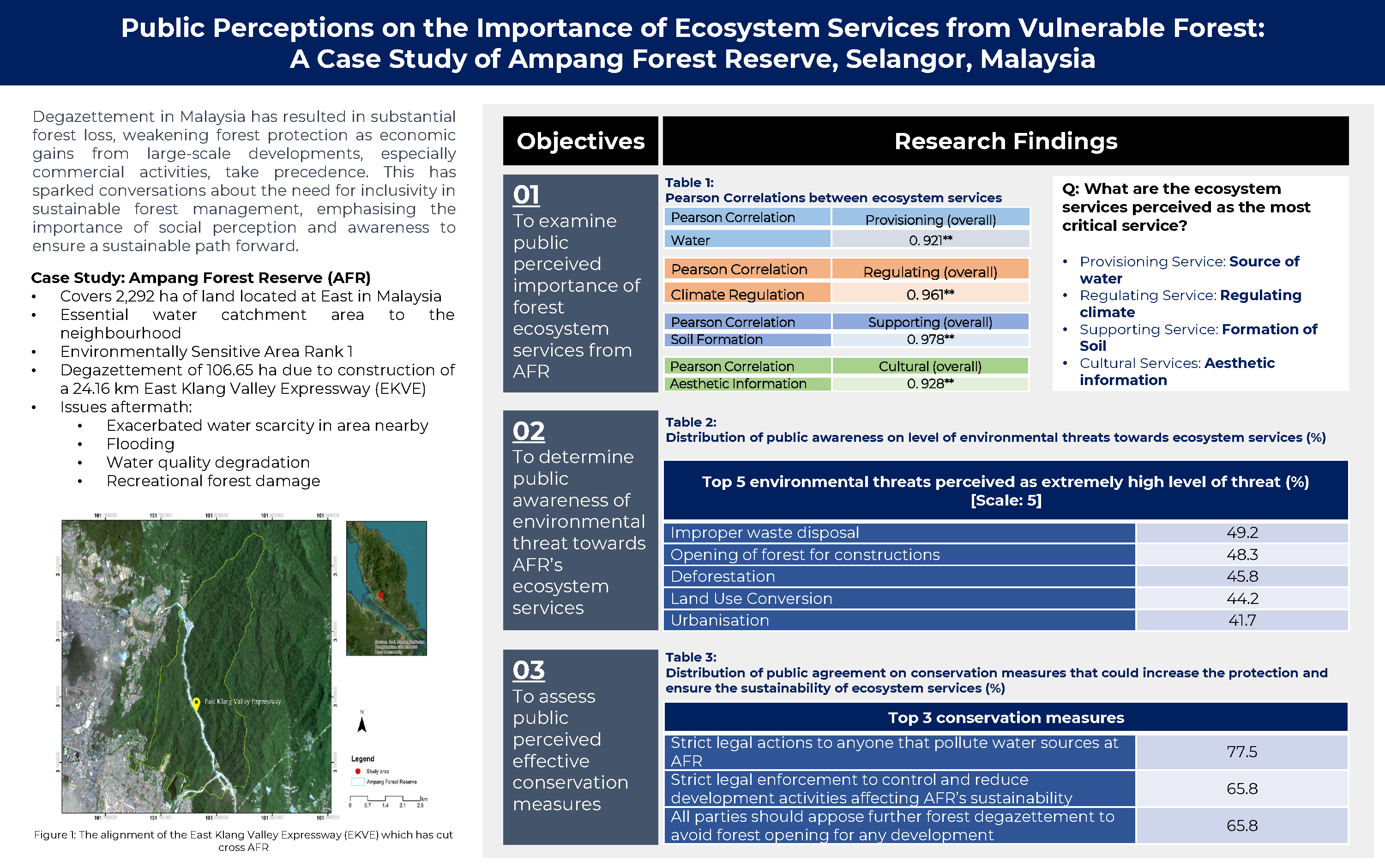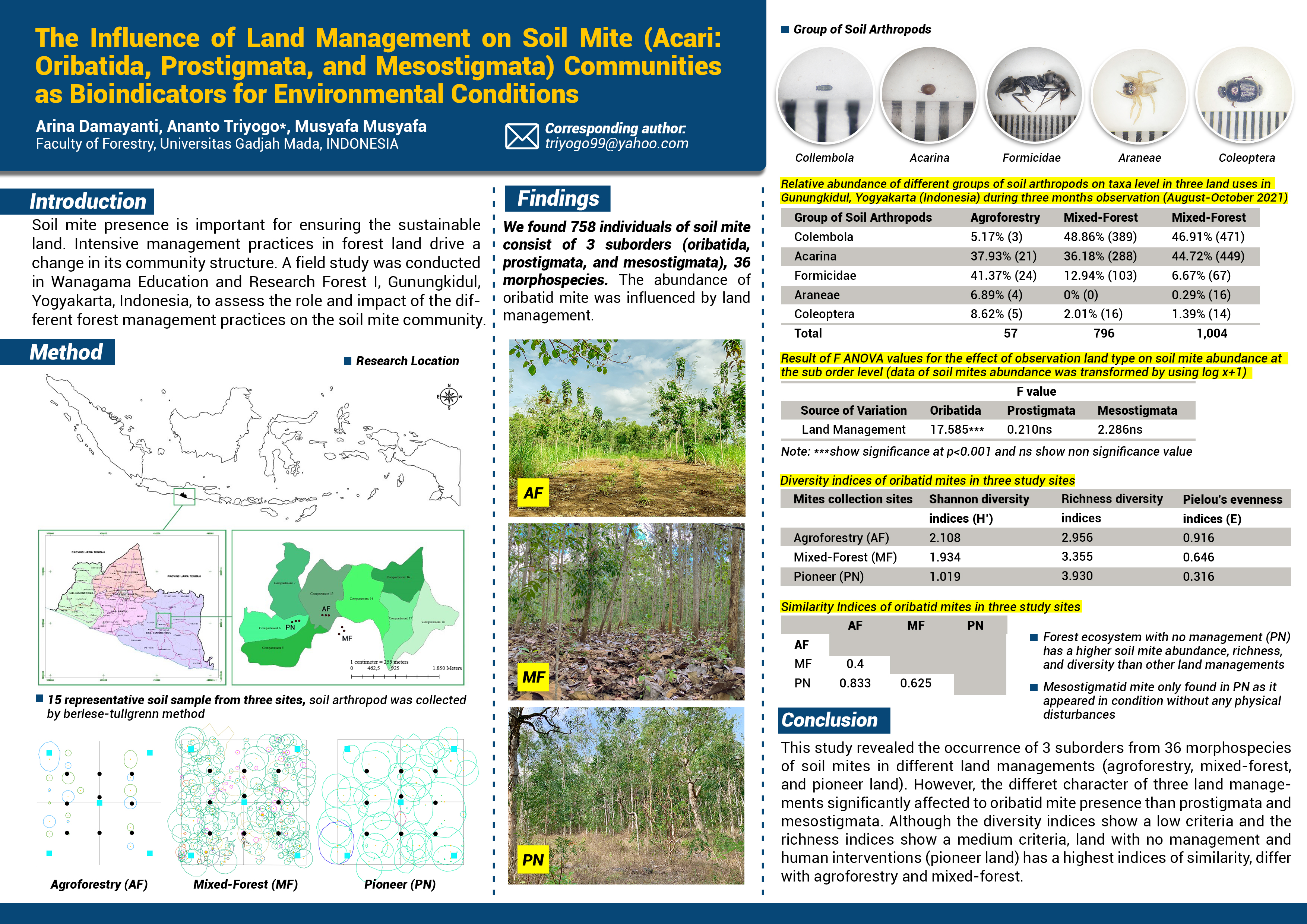Socio-Entropy System Approach for Analyzing of Social Forestry Management in Indonesia
Abstract
Socio-entropy system approach (SESA) as used as a comprehensive tool to identify any kind of social shortcoming that might have constrained achievement of government policy on social-forestry. The study objectives were to observe all critical factors on the program implementation of social forestry and to analyze any intervening variables relevant to socio-psychological, socio-ecological, socio-economic, and socio-cultural shortcomings (being called here as socio-entropies) that would have been most crucial to the required policy modification. Samples were taken by purposive sampling and intensively interviewed using questionnaire. Data was analysed using structural equation modeling. The study found out that the socio-psychological entropy which apparently needs to comprehend basically relates to 3-intervening variables of self-esteem, individual compassion, and non-formal education. Likewise from the socio-ecological stand point, what need to be controled better were the spirit of owning more land plots, and the geo-morphological position of owned land plots. Meanwhile socio-economic entropy seemed to appear as consequences of people efforts in gaining more income due to hedonistic temptation and lack of knowledge about the type of environmentally sound livelihoods. Finally, the crucial factors of socio-cultural entropy were the faded away adat-law, weakening social norms, and absence of inter-ethnic but more closed, and traditional networking.
Authors
HasbullahI. A., AsmaniN., & YazidM. (2016). Socio-Entropy System Approach for Analyzing of Social Forestry Management in Indonesia. Jurnal Manajemen Hutan Tropika, 22(2), 126. https://doi.org/10.7226/jtfm.22.2.126

This work is licensed under a Creative Commons Attribution 4.0 International License.
Jurnal Manajemen Hutan Tropika is an open access journal which means that all contents is freely available without charge to the user or his/her institution. Users are allowed to read, download, copy, distribute, print, search, or link to the full texts of the articles in this journal without asking prior permission from the publisher or the author. This is in accordance with the Budapest Open Access Initiative (BOAI) definition of open access.







